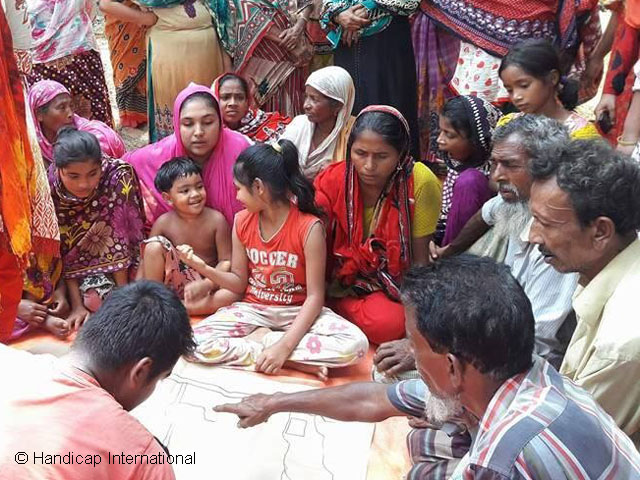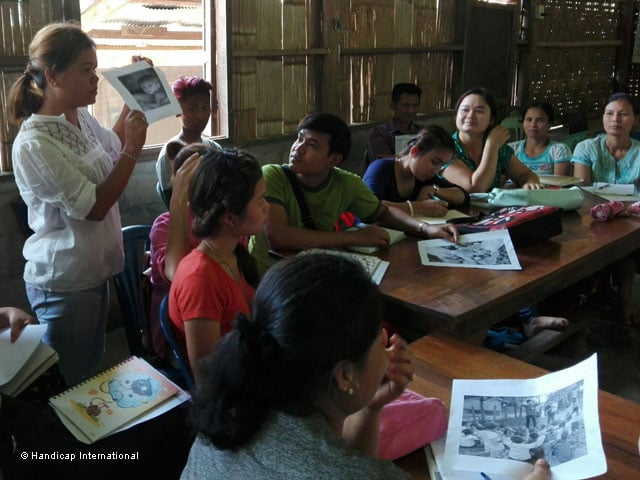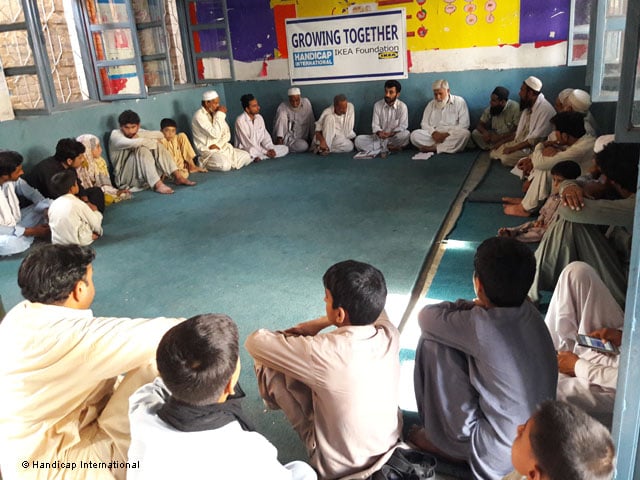Growing Together : Training parents on the importance of play in refugee camps
Handicap International, with the support of the IKEA Foundation, is helping 13,000 children in refugee camps in Pakistan, Bangladesh and Thailand to learn how to develop safely through play. The association trains parents and community volunteers so they can stimulate children from an early age.

Mae La (Mae Sot)/Refugee camp | © Elise Cartuyvels/Handicap International
As part of the Growing Together project, supported by the IKEA Foundation, Handicap International promotes early detection, child stimulation and rehabilitation sessions with children in order to avoid the emergence of disabilities and improve their living conditions on the long term. The association trains parents, caregivers and community volunteers to stimulate young children, especially through playful and daily activities.
Bangladesh
Handicap International conducted community mapping in refugee camps, including the Nayapara camp in Bangladesh. The association involved 25 community members to identify the most fragile, disabled children, parents and children who will participate in the Growing Together project (parent and child committees, Play activities, rehabilitation sessions, and others).

The association also conducted community mapping in the village of Balukhali, involving community members.
Thaïland
Handicap International has trained more than forty community volunteers in three refugee camps near the border with Burma. Volunteers learn how to care for children (hygiene), how to feed them, stimulate them and encourage them to play at an early age. 17 volunteers have also been trained on child rights and protection, in order to identify risks and to refer child victims of violence to organizations offering adapted services.

Pakistan
In the refugee camps, including the Peshawar camp in Pakistan, Handicap International trains fathers to the importance of play and infant stimulation, which promote the development of the child. They also learn how to stimulate children from an early age: "Stressed children, or ones that grow up in fear, can’t learn and develop normally. It is crucial that psychological and emotional well-being is ensured through interaction with those around him, and by playing at home regularly," explains Alexey Kruk, regional coordinator of the Growing Together project.

Handicap International also conducts training sessions with mothers in the Peshawar refugee camp to explain the importance of child play and infant stimulation techniques.





